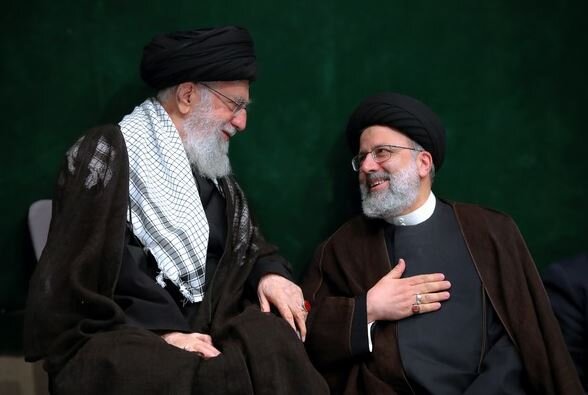Raisi: The exemplary human of the Islamic Revolution

TEHRAN – On the anniversary of the martyrdom of Seyyed Ebrahim Raisi, the Leader of the Islamic Revolution, Ayatollah Seyyed Ali Khamenei highlighted his exceptional qualities, emphasizing that recounting these traits serves as a lesson for all.
He concluded that figures like the late president, who steadfastly followed the path of martyrs over the past four decades, embody the enduring strength of the Islamic Revolution. This human capital is what Imam Khomeini called ‘Fath al-Futuh’, or the Ultimate Victory.
Following the success of Operation Tariq al-Quds during the Iran-Iraq War, Imam Khomeini, in a message, defined ‘Fath al-Futuh’ as these very human assets:
"What fills me with pride is the unwavering spirit, the hearts brimming with faith and sincerity, and the martyrdom-seeking devotion of these beloved individuals—the true soldiers of Imam Mahdi (AS). This is indeed the Ultimate Victory."
The people shaped by the Islamic Revolution and the teachings of Imam Khomeini continue to emerge, inspiring not only Iranians but people worldwide. The martyrs who defended the shrines of holy figures against Daesh terrorists represent the latest generation of this revolutionary spirit and the heirs of Imam Khomeini’s legacy.
Haj Qasem Soleimani stands as the ultimate embodiment of this school of thought. Martyr Seyyed Ebrahim Raisi, in turn, was a perfect example of the Islamic Revolution’s ideals, proving through his leadership that Imam Khomeini’s ‘Fath al-Futuh’ remains fruitful. His life was a testament to the Revolution’s vitality.
The people of the Islamic Revolution are relentless in their pursuit of ideals, undeterred by danger. But what drives this unwavering dedication? What sets them apart from others? How does a follower of Imam Khomeini’s teachings leave such a profound impact, stirring hearts even amid the challenges of leadership? And why does even their absence compel critics to acknowledge their virtues?
Raisi possessed remarkable personal and managerial qualities. His transformative influence was evident wherever he served—whether at the Astan Quds Razavi, the judiciary, or the presidency. He was not one for routine; he brought fundamental, lasting change.
Hardworking, courageous, and revolutionary, he was a man of ethics, deeply connected to the people, and tirelessly dedicated to empowering the youth. He was knowledgeable, detail-oriented, and capable of uniting diverse talents. Above all, he was pure-hearted, sincere, and humble.
Yet all these qualities rested on two foundational pillars. Without them, Raisi would not have personified the Revolution’s Ultimate Victory, nor would he have earned such deep public affection and the Leader’s high praise. Without them, "Raisi" would not have become "Martyr Raisi."
Those two pillars were truthfulness and sincerity.
It was the miracle of sincerity that made Raisi the "Martyr President." He lived as a martyr so that he would die as one—and the essence of such a life is sincerity. He mastered his inner self to undertake great external endeavors.
Every transformation, movement, and struggle he manifested outwardly stemmed from the strength he cultivated within.
Raisi’s truthfulness and sincerity turned him into a legend. His time in leadership served as a reminder that even in a world marred by deceit, where corrupt rulers honor each other for crimes and oppression, purity and genuine service remain possible.
